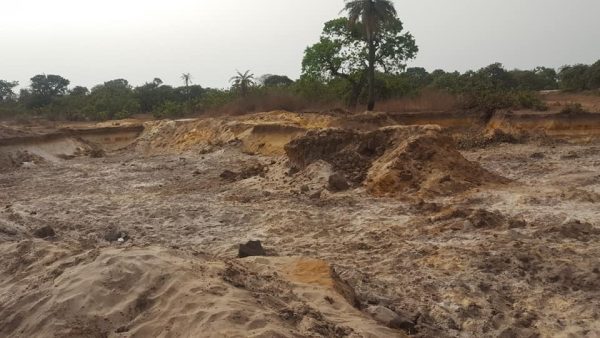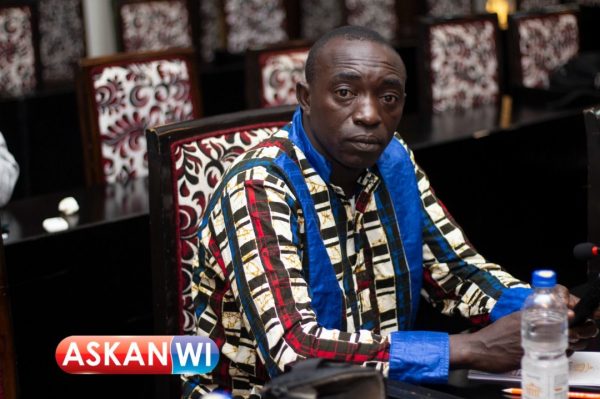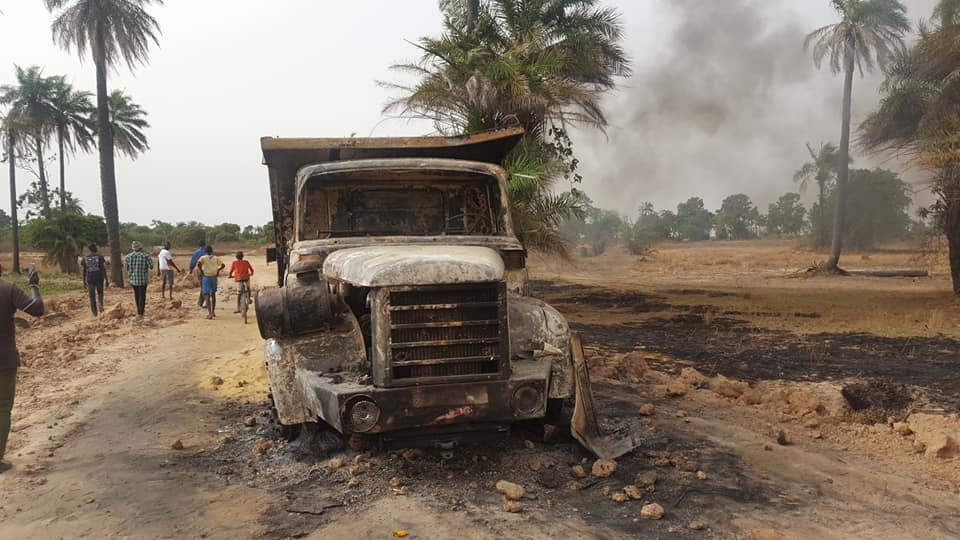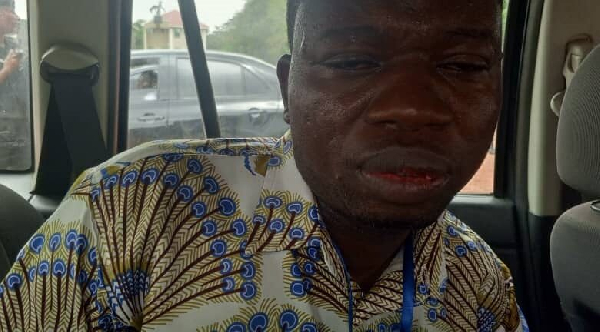The Gambia’s once-pristine coastal regions and inland communities, such as Gunjur, Sanyang, Kartong, Tunjereng, Tanjai, Banjul, and Bakau, are facing mounting environmental challenges. Unsustainable agricultural practices, rampant sand mining, and unchecked industrial pollution threaten not only the environment but also the livelihoods of the people who depend on it. Amid this crisis, a group of dedicated environmental activists and community leaders has emerged, fighting tirelessly to protect their communities and preserve the natural environment. This report sheds light on the experiences of some communities and individuals as they navigate the legal, physical, and emotional obstacles of environmental activism.
The Faraba Banta Protest: Tragedy and Resistance
One of the most tragic events in The Gambia’s environmental history is the Faraba Banta protest. This small town in the Kombo East District which is more than 50 kilometers away from the country’s capital city Banjul, became a flashpoint for conflict due to large-scale sand mining activities. Historically dependent on agriculture, the community watched helplessly as their farmlands and environment were devastated by the government-approved mining operations of Julakay Construction Company. Residents grew increasingly frustrated by the authorities’ disregard for their concerns, which ultimately led to a deadly confrontation.

On June 18, 2018, peaceful protests by Faraba Banta residents demanding a halt to the mining turned violent when the Police Intervention Unit (PIU) opened fire on the protestors. Three young men—Bakary Kujabi, Ebrima Bah, and Ismaila Bah—lost their lives, two of them on the spot, and several others were injured. This tragic incident became a national symbol of state violence and a failure to protect environmental and human rights activists.
In the aftermath, a Commission of Inquiry was established, which recommended the cessation of mining in Faraba and the prosecution of responsible officers. However, justice remain elusive. While two officers were dismissed, they have yet to be prosecuted, and the victims’ families still await compensation. The incident exposed deep flaws in environmental governance and law enforcement in The Gambia, galvanizing a new wave of activism.
Sanyang’s Environmental Struggles: From Fishing to Revolt
In March 2021, the coastal village of Sanyang became the epicenter of another significant environmental protest. Years of unregulated fishing and pollution from foreign-owned fishmeal factories, such as the Chinese owned Nissim Fishmeal Factory, had ravaged the local ecosystem and livelihoods. The tipping point came with the murder of a young fisherman, Ousman Darboe, allegedly by a foreign worker. This tragic incident ignited an already tense situation, leading to violent protests during which the Sanyang Police Station was destroyed, along with several vehicles and the fishmeal factory was vandalised.
The Sanyang protests highlighted the frustration of communities suffering from environmental exploitation and perceived injustices in law enforcement. While the government responded by deploying security forces, the underlying environmental grievances remain largely unaddressed.
Legal Battles and Threats to Activists
Environmental activism in The Gambia is fraught with legal hurdles. Mustapha Manneh, an activist from Kartong, described how companies involved in sand mining continuously hit him with lawsuits, draining his finances and strength. Similarly, Kemo Fatty from Gunjur has led efforts against the Golden Lead Fishmeal Factory, whose toxic discharges have devastated the local ecosystem. Despite filing lawsuits, Kemo explained that the legal process remains slow and costly, allowing harmful practices to persist.
On September 3, 2024, The Gambia’s Minister of Environment, Climate Change, and Natural Resources, brought a defamation suit against Kebba Ansu Manneh, a reporter with the private online newspaper, Alkamba Times. The Minister took the legal action after the journalist and the Alkamba Times ignored her threat. She cited “malicious and unfounded allegations” made against her in a report that alleged that she was involved in illicit dealings related to seized mahogany logs.

Denial of Access and Intimidation
A key tactic used by companies to stifle environmental activism is the denial of access to critical areas. In Faraba, security personnel hired by mining companies and even the police intervention unit of the Gambia Police Force prevent locals from accessing lands they have traditionally farmed on. In other communities, such as Tunjereng and Tanjai, activists face similar obstacles, as companies block them from monitoring environmental destruction and gathering evidence.
Community Resilience and Success Stories
Despite these challenges, activists and community leaders have developed coping mechanisms and have seen some successes. In Gunjur, Kemo Fatty has mobilized the community, organizing protests and workshops to keep the conversation alive. In Kartong, international support from Gambians in the diaspora and other international partners such as the EU and the US has helped bring attention to the local struggles, leading to temporary halts in harmful practices.
The Faraba Banta community, after years of protests, managed to secure a temporary ban on mining activities—a victory that demonstrates the power of persistence. These successes provide hope, showing that despite the overwhelming odds, positive change is possible.
The Fight for a Sustainable Gambia
The journey to protect The Gambia’s environment is long and difficult, involving legal battles, physical abuse, and constant intimidation. Yet, the resilience of activists like Ousainou Gambia, Kemo Fatty, Sol Slim, and others inspires hope. Their dedication to environmental justice, supported by their communities and international solidarity, is a testament to the strength of grassroots activism.
Environmental degradation along The Gambia’s coastal zones continues to be a pressing issue, with illegal mining and the establishment of fishmeal factories severely affecting the livelihoods of local communities. Women, in particular, who rely on agriculture, have seen their farmlands devastated by saltwater intrusion caused by mining activities. The contamination renders the land unusable, threatening their primary means of income and sustenance.
Most of the companies involved in these destructive practices are reportedly backed by either powerful Gambians with strong connections to the government or Chinese investors, who are perceived to be gaining influence through financial aid to the state. This has made it difficult for local communities and activists to hold these corporations accountable.
Nevertheless, environmental activists in The Gambia continue to raise their voices against these damaging activities, calling for an end to the degradation of natural resources and a more sustainable approach to development. The government can support their noble cause by offering greater protection to them, ensuring that those who attack environmental activists are brought to book, and generally expanding the frontiers of expression so that people can advocate and demand for sustainable environmental practices without fear or favour.
This report is produced as part of the Media Foundation for West Africa (MFWA)’s project on Promoting Agroecology and Environmental Sustainability; and Enhancing Freedom of Expression in West Africa. The project, which is being implemented with funding support from the 11th Hour Project of the Schmidt Family Foundation, is aimed at promoting sustainable environmental and agricultural practices and enabling the environment for expression to ensure that unsustainable activities can be reported for redress.






